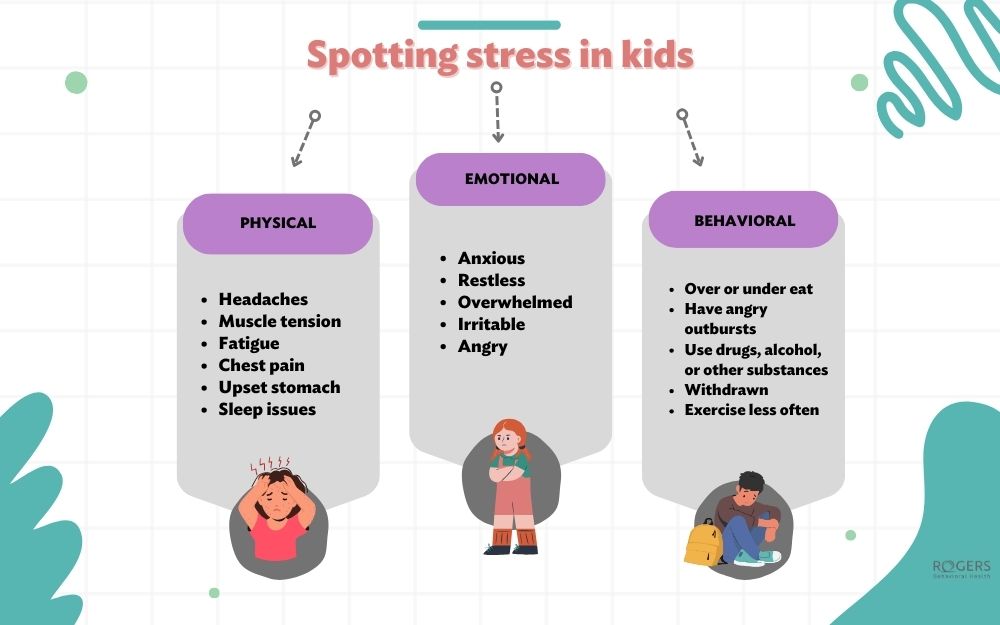By David Jacobi, PhD, psychologist, clinical director for Rogers in Sheboygan
Let’s begin by understanding what causes stress, also known as a stressor. A stressor is a situation a person experiences as threatening in some way. It can be academic, social, an event in one’s family or the world, a traumatic incident, or a significant life change.
How a child interprets the situation, and its potential impact affects how and the degree to which they may experience stress.
Stress symptoms
Physically, they may have:
- Headaches
- Muscle tension
- Fatigue
- Chest pain
- Upset stomach
- Sleep issues
Emotionally, they may feel:
- Anxious
- Restless
- Overwhelmed
- Irritable
- Angry
Behaviorally, they may:
- Over or under eat
- Have angry outbursts
- Use drug, alcohol, or other substances
- Withdraw
- Exercise less often
What causes stress for kids?
A study by the American Psychological Association showed that half of the teens surveyed noticed they felt stress.
Their most common sources of stress were school, getting into a good college, and family finances. Other causes noted were maintaining social networks, juggling school, job and relationships, world and traumatic events, family issues, and life changes like moving and changing schools.
How to reduce stress: what parents and caregivers can do to help
There are many things parents and caregivers can do to help reduce stress in children. They can provide a secure home environment, create family routines like regular family meals, limit exposure to certain shows and violent video games, and model healthy stress management.
Additionally, it’s important to communicate anticipated changes to children, listen to them without being critical, allow them to have some choices, and encourage sleep, a healthy diet, and exercise.
When should a parent or caregiver be concerned about a child’s stress?
It’s normal for kids to experience stress and even feel anxious from time to time. If a parent or caregiver notices that stress is interfering with normal daily functioning in multiple areas of life and the child is becoming increasingly withdrawn and is isolating from family, friends, and school activities, then it could be time to seek help.
Rogers Behavioral Health offers compassionate care for kids struggling with anxiety, including residential care for children and adolescents. You can call 800-767-4411 or request a free and confidential screening.


